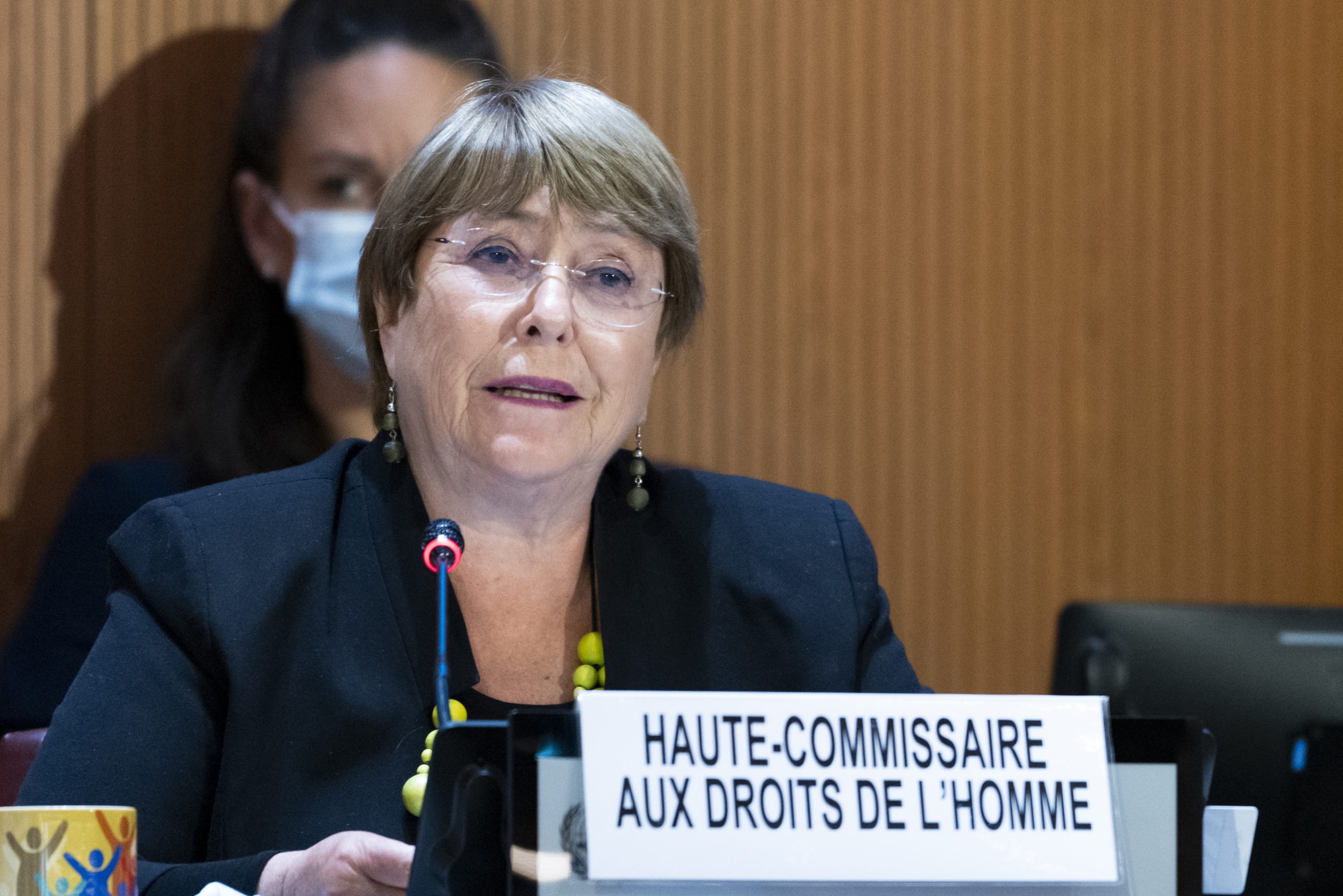Bachelet’s Guangzhou statement concludes her failed visit to China, the first by a UN High Commissioner for Human Rights to the country in 17 years. Her failure to adequately address the human rights crisis in the country following her 6-day trip comes despite overwhelming evidence gathered by non-governmental organisations and UN experts from the Special Procedures[1] and Treaty Bodies[2] detailing grave human rights violations that could amount to crimes against humanity and genocide.
Despite the joint call from over 60 Uyghur, Tibetan, Hong Kong, mainland Chinese and international NGOs, High Commissioner Bachelet indicated her visit was not an investigation, but an opportunity to ‘listen to each other, raise concerns.’ Her statement lists broad concerns in a remarkably light language. She reported being ‘unable to assess the full scale’ of internment camps – for which she used the government’s term of ‘vocational and education training centre’ – and relayed Beijing’s assertion that this system has been ‘dismantled’ without stating whether she was given any evidence of this.
Her statement includes her first-ever mention of Tibet, only to say she ‘discussed education policies’ with the authorities, with no clear recommendations.
Bachelet also made a brief mention of human rights defenders being ‘penalised’ under China’s national security framework, but did not include any individual case of detained defenders, despite extended monitoring by UN working groups and special rapporteurs. She raised ‘Residential Surveillance at a Designated Location’ (RSDL) as a form of arbitrary detention, whereas UN experts have reiterated that it is also a form of enforced disappearance.
Bachelet fell short even of the work done by the UN's very own independent experts and committees in documenting both the scope and the gravity of rights violations across the country.
Raphael Viana David, ISHR's Acting Asia Programme Manager
In June 2020, over 50 Special Procedures experts called for ‘decisive measures to protect fundamental freedoms in China’, including the establishment by the Human Rights Council of ‘an impartial and independent United Nations mechanism to closely monitor, analyse and report annually on the human rights situation in China.’ They reiterated grave concern at a range of issues including the ‘collective repression of the population, especially in Xinjiang and Tibet, the detention of lawyers and prosecution and disappearances of human rights defenders across the country.’
Bachelet cites as her visit’s achievement the establishment of an ‘annual strategic meeting’ between her Office and China’s government, as well as a ‘working group to facilitate substantive exchanges and cooperation’. She did not indicate whether these exchanges would be public, nor when and what format they would take.
In her press conference, Bachelet discoursed extensively on gun violence in the United States in response to Chinese State media, but provided only succinct responses to questions on her assessment of rights violations in the Uyghur region.
The Human Rights Council, the UN’s top human rights decision-making body, has been marked by increasingly polarised debates on China’s rights crisis, described by Beijing as Western ‘interference in China’s affairs.’ Over 40 governments have been calling out China’s rights abuses over the past years, to which China has responded by mobilising diplomatic allies to rebuke criticism.
This was not only a test for her, but for the credibility of the UN's human rights office, and she failed. Her visit will have a lasting impact on the prospects for an impartial, multilateral response to China's human rights crisis. This will only bolster Beijing's entrenched sense of impunity.
Raphael Viana David, ISHR's Acting Asia Programme Manager
As Bachelet is still the one holding off on publication of a UN report on the Uyghur region, the contrast with all other national crises she's addressed throughout her mandate could not be starker. The one thing she should do now is to immediately publish her report with strong recommendations to China, and a call for action to the international community.
Raphael Viana David, ISHR's Acting Asia Programme Manager
ISHR calls on the High Commissioner to:
- Immediately publish the OHCHR report on the Uyghur region, with clear, compelling recommendations to the Chinese government, and present her findings in a briefing to the Human Rights Council.
- Ensure that the established ‘annual strategic meeting’ and ‘working group’ for dialogue with the authorities are of a public nature, include specific substantive concerns and recommendations to the government, and involve meaningful consultation with a diverse set of independent civil society groups.
ISHR also calls on the Chinese government to follow suit on promises for subsequent visits by the OHCHR by granting prompt unfettered access to Hong Kong and the Tibetan region.
Author
Raphaël Viana David
Raphaël is ISHR's China and Latin America Programme Manager in our Geneva office. He joined ISHR in 2018.
Article also available in

